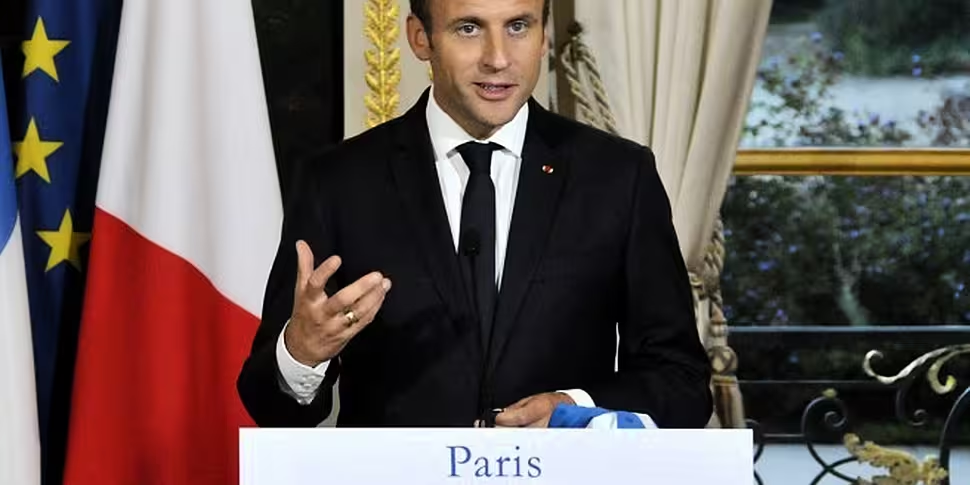The British Prime Minister has been told that more clarity is needed on Britain's negotiating position to break the deadlock in Brexit talks.
The warning comes after Theresa May called on European leaders to strike a "bold and ambitious" trade deal with Britain within two years of the official Brexit date.
The French president Emmanuel Macron has responded by reiterating the warning that several issues have to be ironed-out before any future relationship can be discussed.
“I remind everyone that we have a very clear method that was announced,” he said.
“Before we move forward we wish to clarify the issue of the regulation of European citizens, the financial terms of the exit and the question of Ireland.”
"If these three points are not clarified, we will not be able to advance on the rest."
Concrete position
Manfred Weber, a German MEP and close ally of Chancellor Angela Merkel, said: "In substance, PM May is bringing no more clarity to London's positions.
"I am even more concerned now."
Chief EU negotiator Michel Barnier said the speech showed a “willingness to move forward” with time drawing short to reach a deal - but also called for greater clarity.
He said the EU will continue to insist on sufficient progress in key areas regarding the UK’s orderly withdrawal from the bloc – Ireland, citizens’ rights and the Brexit bill – before opening negotiations on a future trading relationship
“We look forward to the United Kingdom's negotiators explaining the concrete implications of Prime Minister Theresa May's speech,” he said.
The leader of the British Labour Party, Jeremy Corbyn said Mrs May's speech "appeared to be the product of negotiations within the Tory Party rather than negotiations with the EU."
Florence address
Speaking in Florence, in what was regarded as her most important speech since taking office, Theresa May called for a two-year "implementation period" after Britain officially leaves the bloc in March 2019.
She insisted this period would be strictly time limited - and in an attempt to break the deadlock on the "divorce bill", promised that the UK would "honour its commitments" to the EU budget.
Ireland
The Taoiseach Leo Varadkar gave a cautious welcome to Mrs May’s pledge to support the Good Friday Agreement as well as her promise that there would be no physical border on the island of Ireland.
He warned however that further clarity would be needed on a range of issues.
“I think it is a genuine effort by the prime minister to move things along and make progress,” He said.
“We will of course need further clarity and further understanding as to how a transition period might work.
“But requesting a transition period is also a step in the right direction.”
Landmark address
The address was eagerly anticipated in Brussels, where senior figures have warned that Britain has not set out enough of its strategy.
It contained a new offer to EU citizens living in the UK that their rights would be enshrined in the final Brexit treaty, so that the British courts are directly bound by the agreement.
In another concession, she added that European Court of Justice case law could be taken into account in these cases, in order to assuage concerns that the UK Parliament might seek to dilute their rights in future.
Mrs May, in a direct message to Europeans living in the UK, said: "We want you to stay, we value you and we thank you for your contribution to our national life. And it has been - and remains - one of my first goals in this negotiation to ensure that you can carry on living your lives as before."
The tone of the speech was conciliatory, with Mrs May telling other EU countries that Britain wanted to be their "strongest friend and partner" after Brexit, and work together on crucial security issues such as trafficking and terrorism.
The PM said: "I believe we share a profound sense of responsibility to make this change work smoothly and sensibly, not just for people today but for the next generation who will inherit the world we leave them.
"The eyes of the world are on us but if we can be imaginative and creative about the way we establish this new relationship... I believe we can be optimistic about the future we can build for the United Kingdom and for the European Union."
The fourth round of negotiations gets underway in Brussels this Monday September 25th.









